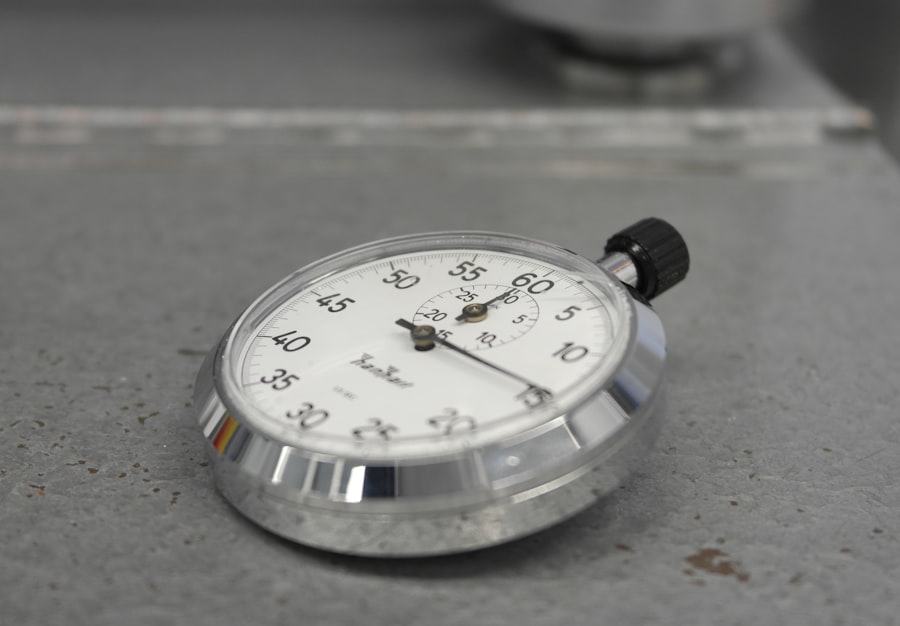Starting Your Own Fabrication Shop: A Beginner’s Guide

The fabrication industry is a diverse and dynamic sector that involves the creation of metal structures and components through cutting, bending, and assembling processes. This industry serves a wide range of sectors including construction, automotive, aerospace, and manufacturing. Fabrication shops are responsible for producing a variety of products such as structural steel, machinery parts, and custom metal components. The fabrication process requires skilled workers, advanced machinery, and a deep understanding of engineering principles.
Fabrication shops can specialize in different areas such as sheet metal fabrication, structural steel fabrication, or custom metal fabrication. Each specialization requires specific skills and equipment to meet the unique needs of the clients. The fabrication industry is constantly evolving with new technologies and materials, making it essential for businesses to stay updated with the latest trends and techniques. Understanding the fabrication industry involves staying informed about market demands, technological advancements, and industry regulations to ensure the success and sustainability of the business.
The fabrication industry is highly competitive, requiring businesses to differentiate themselves through quality, efficiency, and innovation. Building a successful fabrication shop involves a deep understanding of the industry, market demands, and customer needs. By staying informed about the latest trends and technologies, businesses can position themselves as leaders in the fabrication industry and provide high-quality products and services to their clients.
Creating a Business Plan for Your Fabrication Shop
Creating a comprehensive business plan is essential for the success of a fabrication shop. A well-thought-out business plan serves as a roadmap for the business, outlining its goals, strategies, and financial projections. The business plan should include an executive summary, company description, market analysis, organization and management structure, product line or services, marketing and sales strategies, funding request, and financial projections.
The executive summary provides an overview of the business plan, highlighting the key points and objectives of the fabrication shop. The company description outlines the mission, vision, and values of the business, as well as its legal structure and location. The market analysis section delves into the target market, industry trends, competition, and potential growth opportunities. Understanding the market is crucial for identifying the needs of the customers and positioning the business effectively.
The organization and management structure section outlines the key roles and responsibilities within the business, including the management team and any advisory board members. This section also includes an organizational chart to illustrate the hierarchy of the business. The product line or services section details the specific products or services offered by the fabrication shop, highlighting their unique selling points and competitive advantages. The marketing and sales strategies section outlines how the business plans to attract and retain customers, as well as its pricing strategy and sales forecast. Finally, the funding request and financial projections section provides an overview of the funding requirements for the business and its projected financial performance over the next few years.
Securing Financing and Building Your Investor List
Securing financing is a critical step in starting and growing a fabrication shop. There are various options for financing a fabrication business, including traditional bank loans, Small Business Administration (SBA) loans, equipment financing, lines of credit, and investment from angel investors or venture capitalists. Before seeking financing, it’s important to have a clear understanding of the funding requirements for the business and to develop a solid business plan that demonstrates the potential for growth and profitability.
Building a strong investor list involves networking with potential investors, attending industry events and conferences, and leveraging online platforms such as crowdfunding websites or investment forums. Investors are looking for businesses with strong growth potential, a solid business plan, a capable management team, and a clear path to profitability. Building relationships with potential investors takes time and effort, but it can provide valuable resources and expertise to help grow the fabrication business.
When seeking financing for a fabrication shop, it’s important to consider the long-term financial needs of the business, including equipment purchases, working capital, and expansion plans. Working with financial advisors or consultants can help businesses navigate the complex process of securing financing and building relationships with potential investors. By demonstrating a clear vision for growth and profitability, businesses can attract the right investors who can provide the necessary resources to fuel their success.
Choosing the Right Location for Your Fabrication Shop
| Factors to Consider | Metrics |
|---|---|
| Proximity to Suppliers | Distance in miles |
| Access to Transportation | Number of nearby highways |
| Availability of Skilled Labor | Number of technical schools in the area |
| Cost of Real Estate | Price per square foot |
| Local Regulations | Number of permits required |
Choosing the right location for a fabrication shop is crucial for its success. Factors to consider when selecting a location include proximity to suppliers and customers, access to transportation routes, zoning regulations, labor availability, and local business incentives. Proximity to suppliers can reduce transportation costs and lead times for materials, while being close to customers can improve responsiveness and customer service.
Access to transportation routes such as highways, railways, or ports is important for shipping and receiving materials and products efficiently. Zoning regulations can impact the type of activities allowed in a specific location, so it’s important to research local zoning laws before selecting a site for the fabrication shop. Labor availability is another important consideration, as businesses need access to skilled workers to operate machinery and perform fabrication tasks.
Local business incentives such as tax breaks or grants can also influence the decision on where to locate a fabrication shop. Some areas offer incentives to attract businesses and stimulate economic growth, so it’s worth exploring these opportunities when considering potential locations. Ultimately, choosing the right location for a fabrication shop involves balancing these factors to find a site that supports the long-term success and growth of the business.
Purchasing Equipment and Supplies
Purchasing equipment and supplies is a significant investment for a fabrication shop. The type of equipment needed depends on the specific services offered by the business, such as welding machines, cutting tools, bending machines, CNC machinery, and material handling equipment. It’s important to research different suppliers and equipment brands to find high-quality machinery that meets the needs of the fabrication shop.
When purchasing equipment, businesses should consider factors such as reliability, performance, maintenance requirements, and technical support from the supplier. Investing in advanced machinery can improve productivity, quality, and efficiency in the fabrication process, leading to cost savings and competitive advantages in the market. Additionally, businesses should establish relationships with reliable suppliers for raw materials such as steel, aluminum, or other metals used in the fabrication process.
Negotiating favorable terms with equipment suppliers and material vendors can help businesses manage their cash flow and reduce costs. Leasing equipment or exploring financing options can also provide flexibility in acquiring machinery while preserving capital for other business needs. By investing in high-quality equipment and establishing reliable supply chains for materials, fabrication shops can ensure they have the necessary resources to meet customer demands and grow their business.
Hiring and Training Employees

Hiring and training employees is essential for building a skilled workforce in a fabrication shop. The success of a fabrication business depends on having qualified workers who can operate machinery safely, interpret technical drawings accurately, and produce high-quality fabricated products. When hiring employees, businesses should look for candidates with relevant experience in metal fabrication, welding, machining, or other related fields.
Training programs should be developed to onboard new employees and provide ongoing skill development for existing staff. This may involve safety training, technical skills training on specific machinery or processes, quality control procedures, and continuous improvement initiatives. Investing in employee training can improve productivity, reduce errors, and enhance overall performance in the fabrication shop.
Creating a positive work environment that values teamwork, communication, and continuous learning can help attract and retain skilled workers in the fabrication industry. Offering competitive wages, benefits packages, and opportunities for career advancement can also contribute to employee satisfaction and loyalty. By building a strong team of skilled workers through effective hiring and training practices, fabrication shops can position themselves for long-term success in a competitive market.
Marketing and Growing Your Fabrication Business
Marketing plays a crucial role in growing a fabrication business by attracting new customers and expanding its market presence. Developing a strong brand identity that communicates quality, reliability, and expertise is essential for standing out in the competitive fabrication industry. This may involve creating a professional website, designing a memorable logo and branding materials, and developing marketing collateral that showcases the capabilities of the fabrication shop.
Utilizing digital marketing strategies such as search engine optimization (SEO), social media marketing, email campaigns, and content marketing can help reach potential customers online. Building relationships with industry partners such as construction companies, manufacturers, or engineering firms can also generate valuable referrals and new business opportunities. Participating in trade shows or industry events can provide networking opportunities to showcase products and services to a targeted audience.
As the fabrication business grows, it’s important to continuously evaluate market trends, customer feedback, and competitive landscape to identify new growth opportunities. This may involve expanding into new market segments or offering additional services to meet evolving customer needs. By staying proactive in marketing efforts and adapting to changes in the industry, fabrication businesses can achieve sustainable growth and long-term success.
In conclusion, starting and growing a successful fabrication shop requires a deep understanding of the industry landscape, effective planning and execution of business strategies, securing financing from investors or lenders when needed; choosing an optimal location; purchasing high-quality equipment; hiring skilled employees; providing ongoing training; implementing effective marketing strategies; all while staying adaptable to changes in market demands. By following these steps diligently while staying informed about industry trends will ensure that your fabrication shop thrives in this competitive sector.
Looking to start your own fabrication shop? Check out this insightful article on howtostart.digital that provides valuable tips and guidance on getting your fabrication business up and running. Whether you’re looking for advice on equipment, marketing strategies, or managing finances, this article has got you covered. Click here to read the full article and kickstart your journey to a successful fabrication shop.
FAQs
What is a fabrication shop?
A fabrication shop is a facility that specializes in the creation of metal structures and components through cutting, bending, and assembling processes.
What equipment is needed to start a fabrication shop?
Some essential equipment for starting a fabrication shop includes welding machines, cutting tools (such as plasma cutters and saws), bending machines, and material handling equipment.
What skills are required to start a fabrication shop?
Skills required to start a fabrication shop include knowledge of metalworking techniques, welding, blueprint reading, and the ability to operate various fabrication machinery.
How much does it cost to start a fabrication shop?
The cost of starting a fabrication shop can vary widely depending on factors such as the size of the shop, the equipment needed, and the location. It is recommended to create a detailed business plan to estimate the costs accurately.
What are the legal requirements for starting a fabrication shop?
Legal requirements for starting a fabrication shop may include obtaining business licenses, permits, and adhering to safety regulations. It is important to research and comply with local, state, and federal laws.
What are the potential challenges of starting a fabrication shop?
Challenges of starting a fabrication shop may include competition from existing shops, finding skilled workers, and managing the costs of equipment and materials. It is important to conduct thorough market research and create a solid business plan to address these challenges.





